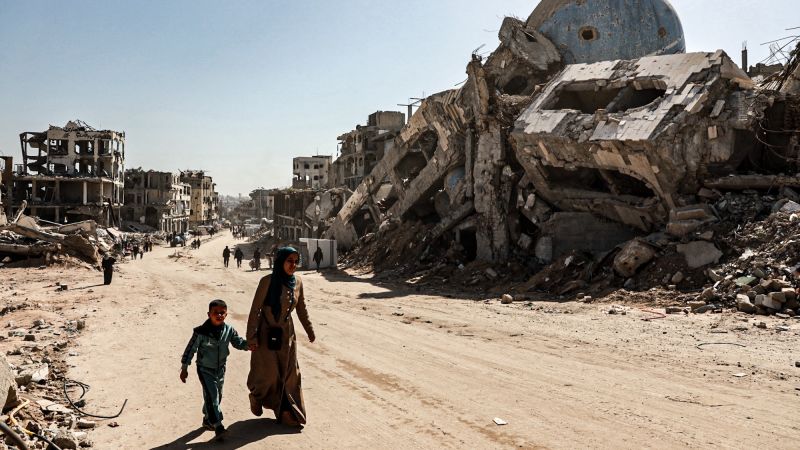
Gaza ceasefire’s future uncertain as Netanyahu sidelines security chiefs in negotiations
CNN
In a move that brings the fate of the Gaza ceasefire even closer under his personal control, Israeli Prime Minister Benjamin Netanyahu is appointing a close political ally to lead talks over phase two of the current ceasefire in Gaza, replacing Israel’s previous chief negotiator.
In a move that brings the fate of the Gaza ceasefire even closer under his personal control, Israeli Prime Minister Benjamin Netanyahu is appointing a close political ally to lead talks over phase two of the current ceasefire in Gaza, replacing Israel’s previous chief negotiator. “In the coming days, Israel will enter negotiations on Phase B, which is a political phase that deals with the question of the conditions for ending the warm,” an Israeli source told CNN. “Accordingly, the Israeli efforts will be led by the Secretary of Strategic Affairs, Ron Dermer, and he will do so in front of the US President’s special envoy for the Middle East, Steve Witkoff.” Dermer replaces David Barnea, the head of Israel’s Mossad spy agency, who led talks in January that resulted in the current deal. The Israeli government has not confirmed whether Barnea will stay on as part of the Israeli negotiating team. Talks on phase two of a ceasefire, which would see the withdrawal of all Israeli troops from Gaza and the release of all living hostages, were supposed to have begun more than two weeks ago. Even as Netanyahu says that the talks will now begin, it is unclear how committed the prime minister is to seeing them succeed. His finance minister, Bezalel Smotrich, has promised to withdraw from the government coalition if Israel does not return to war in Gaza when the current ceasefire expires on March 1. The reshuffle in Israel’s negotiating approach comes as Hamas said that it would release the bodies of four hostages on Thursday, including the two youngest Israelis held by the group, Kfir and Ariel Bibas. The militant group is expected to release six living hostages on Saturday, and a further four bodies next week – all in exchange for more Palestinian prisoners held by Israel. Removing Barnea sidelines Israel’s security establishment, with whom Netanyahu has frequently clashed.

Life in northern Gaza is desperate – there is no water, no electricity and so much rubble that there’s barely enough space to put up tents. Yet many Palestinians are determined to stay and rebuild – even if US President Donald Trump wants them out of the enclave so he can create a Middle Eastern “riviera.”



